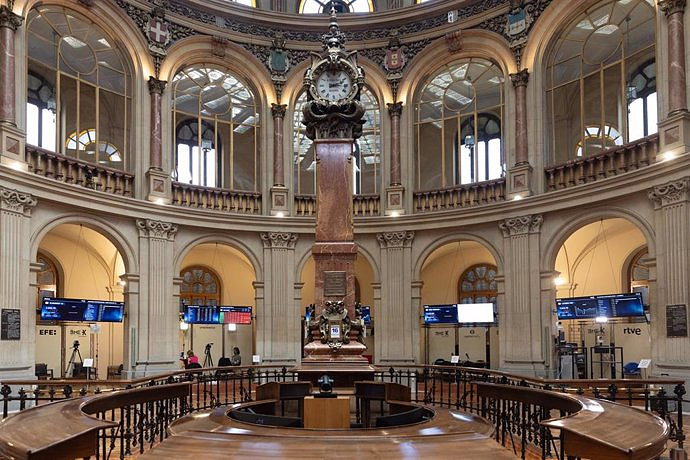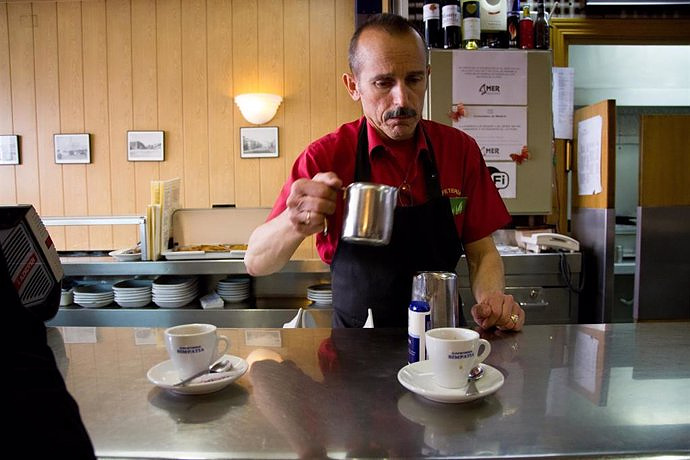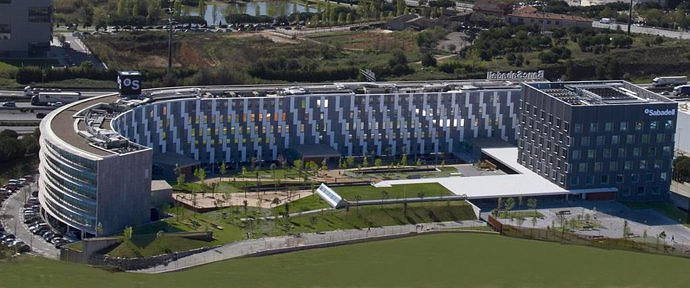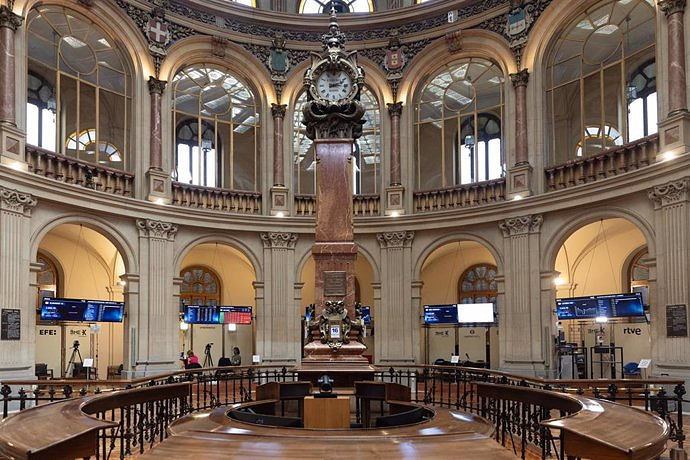He defends that before making a final judicial decision, an investigation must be carried out to find out the truth.
The Barcelona Prosecutor's Office has directly appealed to the Provincial Court the decision of the Court of Instruction Number 18 of the city of Barcelona to reject the complaint filed by the trade unionist Carles Vallejo for the torture he allegedly suffered in 1970 and 1971 during his detention in the Superior Police Prefecture of Vía Laietana, as reported by the Public Ministry.
The Barcelona Prosecutor's Office has acted in coordination with the new Democratic Memory and Human Rights unit, headed by the former State Attorney General Dolores Delgado, who issued a report in favor of appealing the inadmissibility.
This report, signed by Delgado herself, argues that the new Democratic Memory Law (LMD) establishes the State's obligation to investigate to satisfy the victims' right to know.
In a statement, the Public Ministry has explained that this inadmissibility "is premature, since, after the entry into force of the LMD, there is no room for outright rejection of the complaint, but rather it is necessary to carry out an investigation of the facts and its context in order to be able to take a decision on the continuation of the procedure".
The Prosecutor's Office "also recalls that the jurisprudential doctrine alleged in the appealed order corresponds to a legal framework prior to the LMD", a framework that was based on prescription, atypicality and amnesty. However, he maintains that now it is about applying "the right to integrative justice" with a Human Rights approach."
"In accordance with the provisions of the LMD, the right to justice must operate with greater rigor when it comes to investigations of serious violations of Human Rights that may constitute crimes against Humanity or committed in a context of crimes against Humanity" , the report highlights.
Delgado alleges, based on jurisprudence of the European Court of Human Rights (ECtHR) and the Supreme Court ('Scilingo case'), as well as individual opinions of magistrates of the Constitutional Court (TC), that "the duty to investigate is here closely linked with the right to justice, as well as with the right to the truth".
It also cites the doctrine of the State Attorney General's Office regarding the abduction of newborn minors, "in which the criterion of completing the investigation prior to deciding on other issues such as prescription is advocated."
FIRST COMPLAINT WITH THE NEW LAW
It should be remembered that this was the first complaint filed after the entry into force of the Democratic Memory Law, which created the position of courtroom prosecutor specialized in this matter and in Human Rights, a position held by Delgado.
The State Coordinator of Support for the Argentine Complaint (CEAQUA), one of the memorial entities that supports Vallejo in this judicial battle, also highlights that as a result of this case the Prosecutor's Office positioned itself for the first time in favor of the admission for processing of a complaint for the crimes of Franco's regime.
The document, presented almost a year ago with the support of Irídia and Òmnium within the framework of the 'Via Laietana 43, fem justícia, fem memòria' campaign, was directed against six agents of the Social Political Brigade for their alleged attacks on Vallejo, "in a context of widespread and systematic torture and mistreatment against a part of the population," according to CEAQUA.
The campaign emphasizes that this complaint "has a strong symbolic component for the memorial struggle in the city of Barcelona, since the torture occurred in the Prefecture of Vía Laietana 43, which is one of the most emblematic symbols of the topography of the terror of the city, defined by the affected person himself as 'the black hole of Franco's repression'".
For Vallejo, these events constituted a crime against humanity within the framework of International Human Rights Law, but the head of said court inadmissible the complaint, considering, on the other hand, that it cannot be framed in this category, also pointing out that the alleged crime would be covered by the Amnesty Law of 1977 and, in any case, prescribed.
"A STEP BACK FOR JUSTICE"
'Via Laietana 43' understands that this judicial decision "represents a step backwards for Justice in the Spanish State", contrasting it with "the latest positive precedents, among which is the admission for processing and the beginning of the investigations of the complaint of Julio Pacheco for similar events in Madrid".
The memorial entities that make up the campaign denounce that "the refusal to investigate the crimes of Franco's regime represents a violation of the right to truth, justice and reparation", as well as "the continuity and permissibility of the model of impunity based on silence and the oblivion still valid in the Spanish State".
In this sense, they indicate that "Carles' complaint joins a list of more than 100 inadmissible complaints", although they advance that "they will continue to insist that the right to justice and reparation of the victims of crimes of the Franco regime must be upheld." carried out in the courts and that they must interpret the laws in accordance with International Human Rights Law".

 Exploring Cardano: Inner Workings and Advantages of this Cryptocurrency
Exploring Cardano: Inner Workings and Advantages of this Cryptocurrency Seville.- Economy.- Innova.- STSA inaugurates its new painting and sealing hangar in San Pablo, for 18 million
Seville.- Economy.- Innova.- STSA inaugurates its new painting and sealing hangar in San Pablo, for 18 million Innova.- More than 300 volunteers join the Andalucía Compromiso Digital network in one month to facilitate access to ICT
Innova.- More than 300 volunteers join the Andalucía Compromiso Digital network in one month to facilitate access to ICT Innova.-AMP.- Ayesa acquires 51% of Sadiel, which will create new technological engineering products and expand markets
Innova.-AMP.- Ayesa acquires 51% of Sadiel, which will create new technological engineering products and expand markets STATEMENT: The final convention in Courmayeur closed the Coppa Delle Alpi 2024
STATEMENT: The final convention in Courmayeur closed the Coppa Delle Alpi 2024 STATEMENT: Rainbow Robotics participates in ICRA 2024 in Yokohama, Japan
STATEMENT: Rainbow Robotics participates in ICRA 2024 in Yokohama, Japan Study identifies new genetic form of Alzheimer's
Study identifies new genetic form of Alzheimer's Judge Juan Merchan fines Trump for contempt of court in 'Stormy Daniels' bribery case
Judge Juan Merchan fines Trump for contempt of court in 'Stormy Daniels' bribery case How Blockchain in being used to shape the future
How Blockchain in being used to shape the future Not just BTC and ETH: Here Are Some More Interesting Coins Worth Focusing on
Not just BTC and ETH: Here Are Some More Interesting Coins Worth Focusing on UMH researchers are working on a high-quality apricot crop that requires less irrigation water
UMH researchers are working on a high-quality apricot crop that requires less irrigation water The UPV develops an application to improve the quality of life of patients with glioblastoma
The UPV develops an application to improve the quality of life of patients with glioblastoma A sensor system obtains the fingerprint of essential oils and detects if they have been adulterated
A sensor system obtains the fingerprint of essential oils and detects if they have been adulterated Faraday UPV presents the 'Origin' rocket to exceed 10 km of flight: "It is the beginning of the journey to space"
Faraday UPV presents the 'Origin' rocket to exceed 10 km of flight: "It is the beginning of the journey to space" A million people demonstrate in France against Macron's pension reform
A million people demonstrate in France against Macron's pension reform Russia launches several missiles against "critical infrastructure" in the city of Zaporizhia
Russia launches several missiles against "critical infrastructure" in the city of Zaporizhia A "procession" remembers the dead of the Calabria shipwreck as bodies continue to wash up on the shore
A "procession" remembers the dead of the Calabria shipwreck as bodies continue to wash up on the shore Prison sentences handed down for three prominent Hong Kong pro-democracy activists
Prison sentences handed down for three prominent Hong Kong pro-democracy activists ETH continues to leave trading platforms, Ethereum balance on exchanges lowest in 3 years
ETH continues to leave trading platforms, Ethereum balance on exchanges lowest in 3 years Investors invest $450 million in Consensys, Ethereum incubator now valued at $7 billion
Investors invest $450 million in Consensys, Ethereum incubator now valued at $7 billion Alchemy Integrates Ethereum L2 Product Starknet to Enhance Web3 Scalability at a Price 100x Lower Than L1 Fees
Alchemy Integrates Ethereum L2 Product Starknet to Enhance Web3 Scalability at a Price 100x Lower Than L1 Fees Mining Report: Bitcoin's Electricity Consumption Declines by 25% in Q1 2022
Mining Report: Bitcoin's Electricity Consumption Declines by 25% in Q1 2022 Oil-to-Bitcoin Mining Firm Crusoe Energy Systems Raised $505 Million
Oil-to-Bitcoin Mining Firm Crusoe Energy Systems Raised $505 Million Microbt reveals the latest Bitcoin mining rigs -- Machines produce up to 126 TH/s with custom 5nm chip design
Microbt reveals the latest Bitcoin mining rigs -- Machines produce up to 126 TH/s with custom 5nm chip design Bitcoin's Mining Difficulty Hits a Lifetime High, With More Than 90% of BTC Supply Issued
Bitcoin's Mining Difficulty Hits a Lifetime High, With More Than 90% of BTC Supply Issued The Biggest Movers are Near, EOS, and RUNE during Friday's Selloff
The Biggest Movers are Near, EOS, and RUNE during Friday's Selloff Global Markets Spooked by a Hawkish Fed and Covid, Stocks and Crypto Gain After Musk Buys Twitter
Global Markets Spooked by a Hawkish Fed and Covid, Stocks and Crypto Gain After Musk Buys Twitter Bitso to offset carbon emissions from the Trading Platform's ERC20, ETH, and BTC Transactions
Bitso to offset carbon emissions from the Trading Platform's ERC20, ETH, and BTC Transactions Draftkings Announces 2022 College Hoops NFT Selection for March Madness
Draftkings Announces 2022 College Hoops NFT Selection for March Madness
























